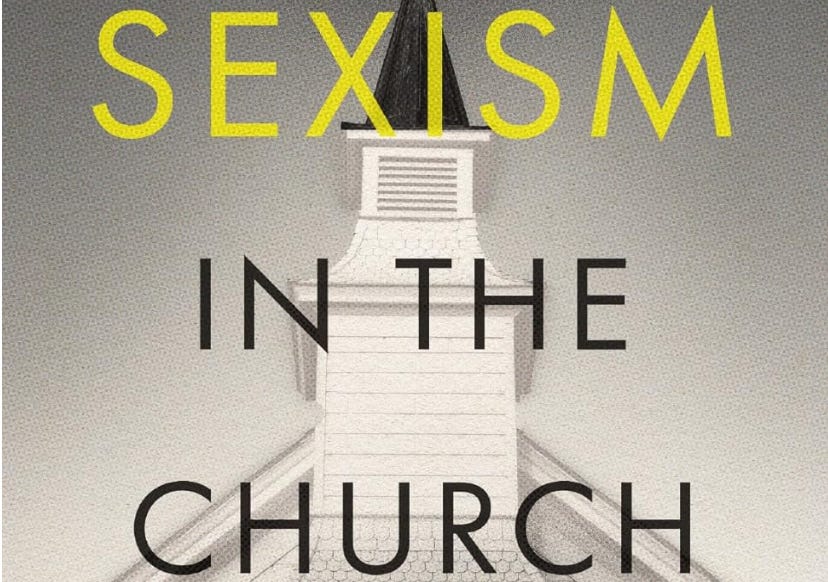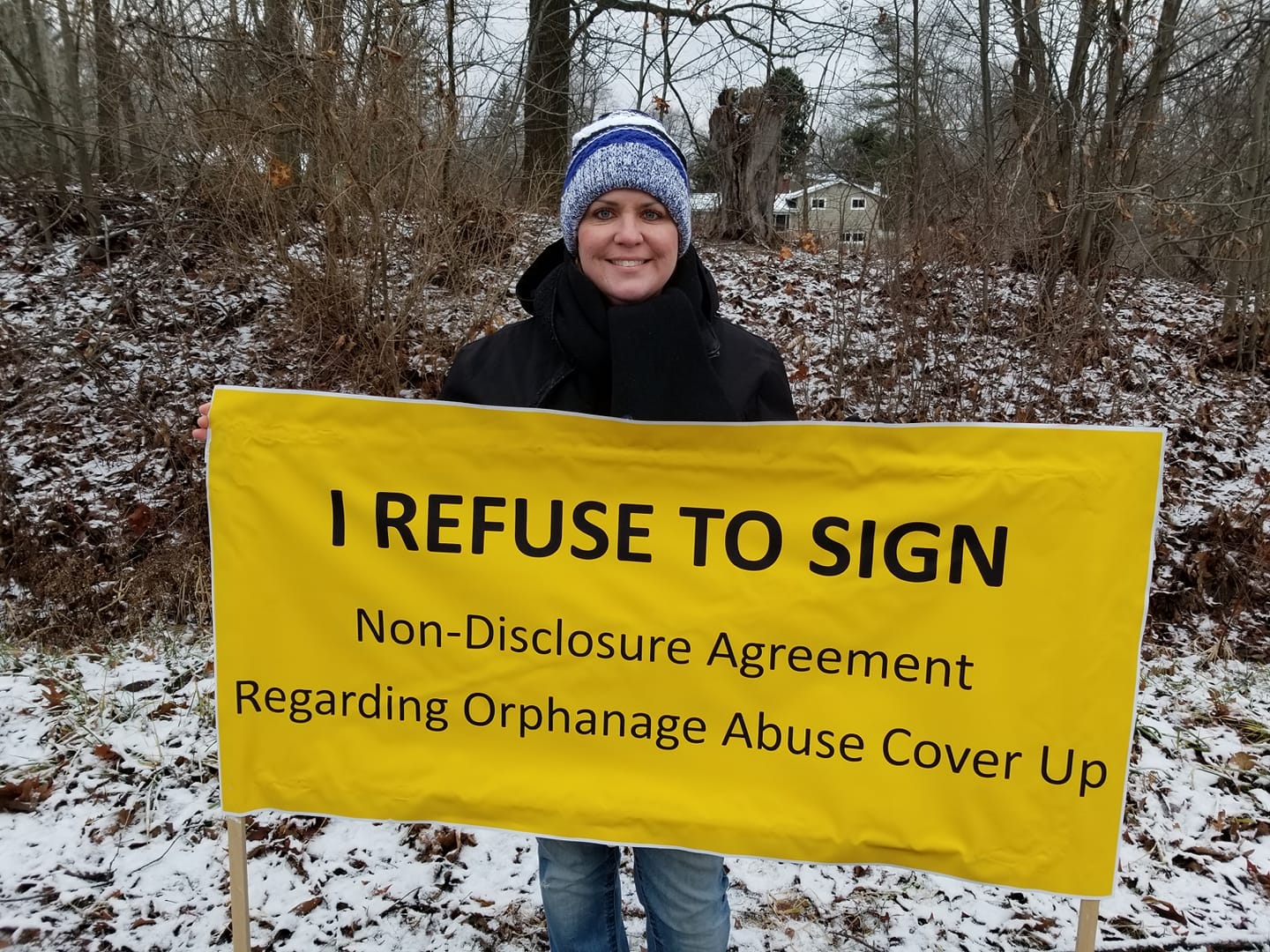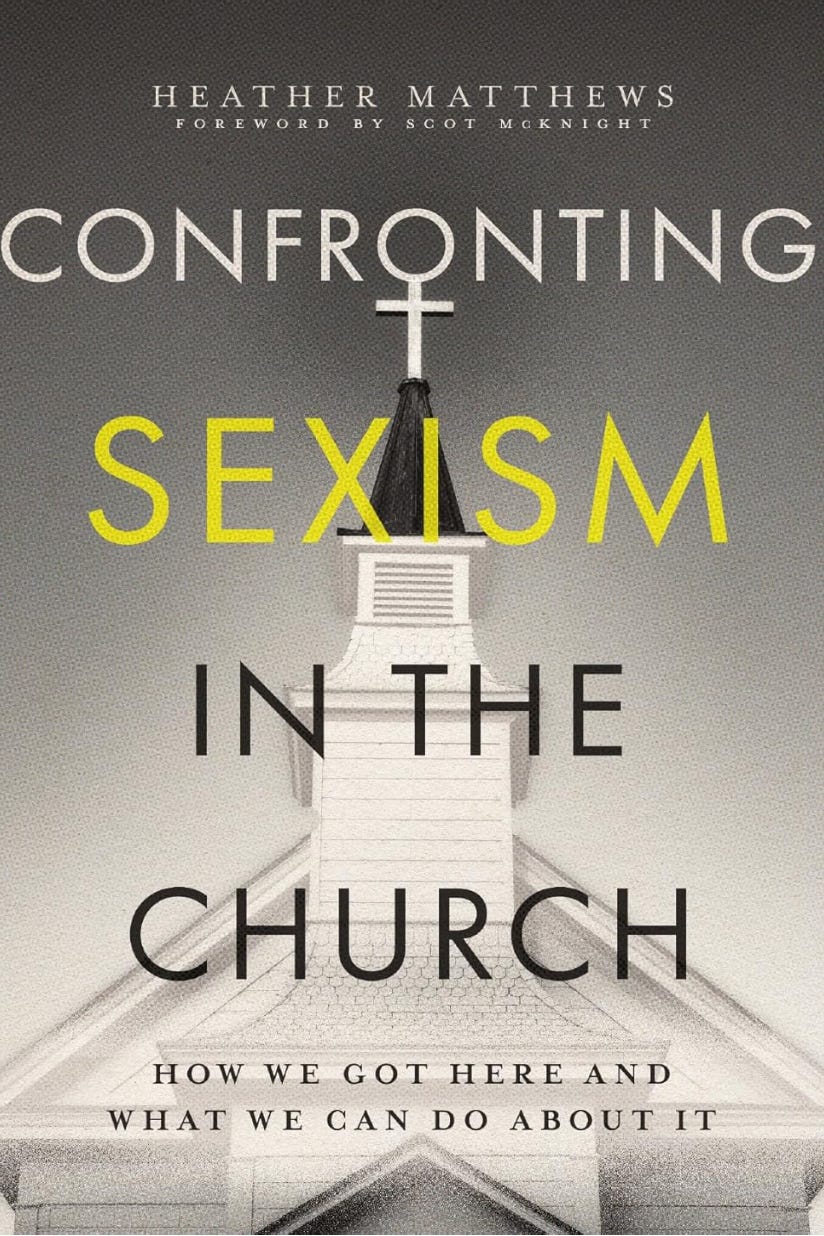By Sarah Bucy Klingler
The title of chapter 7 in Heather Matthew’s Confronting Sexism in the Church immediately grabbed my attention: “Politics, Power, Pornography, and the Perpetuation of Sexism.” Wow! Take that in for a moment. Each one of those words in and of themselves packs a punch, but taken together they serve as a breathtaking indictment of some of the issues behind the misogyny far too many women face in Christian spaces. Perhaps the word that stood out to me the most, in flashing neon lights, is power.
I’ve spent the last seven years of my life wrestling with the problem of power in the American Church, particularly as it relates to abuses of power by those entrusted with spiritual authority. And in white evangelical spaces, spiritual authority lies predominantly in the hands of men. My Master’s thesis for seminary focused on this very problem but also exhorted us to a better, more Christ-like way forward, which is to look at and emulate Jesus’ use of power while he walked the earth. Sadly, in far too many male-led spaces, leaders aren’t looking to Jesus as their model, and so abuse festers and those with less power are left to pick up the pieces. If we refuse to address the cancerous issues this type of “power-over” model brings, we will continue to see scandal after scandal rock the Christian world. Matthews details many of these high-profile cases in this chapter, including the SBC, Ravi Zacharias, Kanakuk Camps, Ethnos 360 (formerly New Tribes Mission), and James MacDonald.
What’s fascinating is that many of the truth tellers and whistleblowers in these cases have been women; women who were often victims of unchecked power by men. Men, who, according to a complementarian reading of the Bible, are the only ones who can serve as leaders in the Church. Men who were supposed to be protectors but instead were powermongers and predators.
I’ve had the sacred honor of working side-by-side with many of these whistleblowers and advocates and with and on behalf of victim-survivors, in a wide variety of Christian abuse scandals. We’ve told our stories to the press, created websites, written countless emails and letters, and stood outside churches with banners while thousands of cars drove by. Together we have boldly confronted leaders of mega churches, seminaries, and mission organizations. Yes, there were some men who stood with us, and I don’t want to discount their role. But for those of us who are women, we were at a disadvantage from the get-go when we dared to speak truth to power in rooms and spaces where women’s voices were rarely heard. Instead of viewing us as concerned and yes, angry, sisters in Christ, who were shining light on very evil and grave injustices, we were instead seen as troublemakers, Jezebels, and overly emotional women trying to tear down the church or organization.
When women have the courage to speak up, we should listen. This is true both inside and outside the Church. In the opening lines of chapter 7, Matthews discusses Kristin Kobes Du Mez’s bestselling book, Jesus and John Wayne, and her inspiration behind the book. Du Mez was both “puzzled and outraged” about the overwhelming evangelical vote for Donal Trump in 2016, despite his confession of sexual harassment on the Access Hollywood tape. Matthews goes on to decry how “evangelicalism’s political views regarding gender roles, abortion, feminism, and LGBTQ+ rights are directly linked to the propagation and perpetuation of sexism in the church.” (97)
The thread woven between gendered power, religion, and politics isn’t new, and Matthews very clearly and expertly traces this thread from the fear created by the feminist movement to evangelicalism’s renewed emphasis on gender roles to male headship being at the heart of a particular understanding of the gospel. She discusses organizations that thrive on making this a central issue – groups like the Council for Biblical Manhood and Womanhood (CBMW), The Gospel Coalition (TGC), and the Southern Baptist Convention (SBC). As she continues to follow the thread, she loops in purity culture and the policing of women’s bodies, which are viewed as dangerous to men – these bodies which must be covered up, even from a young age, lest they tempt. Bodies which must never be alone in a room or car or anywhere with a man other than a spouse (aka “The Billy Graham Rule”). Bodies which must always say yes to marital sex, lest the husband look elsewhere for pleasure, for example, in porn or in an affair with a more desirable, quick-to-please woman. The stats Matthews shares on pastors and pornography use are staggering.
This objectification of women is far from Christ-like. In fact, I would purport, it’s anti-Christ. Jesus treated women with dignity and respect. He taught women, was friends with women, accepted women as his apprentices, met alone with women without fear of reprisal, and entrusted a woman with the gospel news of his resurrection. When women are instead viewed as a threat to male power, when they are oversexualized and not allowed in places of decision-making, it harms women, but it also harms men (who are taught they’re savage, uncontrollable beasts when it comes to sexual desire), children, families, the Church, and our witness to a watching world.
If you’ve made it this far and still aren’t convinced this is actually that big of a problem and don’t believe that men having sole and often unchecked power is truly causing harm to women in the Church, don’t take my word for it. Go listen to the stories of courageous women in the short film, For Our Daughters, produced by Kristin Kobes DuMez. All the trigger warnings for this documentary and also all the gratitude for these incredible women who have honestly risked it all, some of them for decades, to shine light on the magnitude of the abuse problem in the Church. Abuse which has rarely been addressed from the pulpit; abuse which continues to be fed by teachings on male authority and female submission; abuse which comes down to a distorted view of power; abuse which is a bane on the witness of the Church.
Thank you, Heather, for your own courage in sharing that you, too, are a survivor of abuse. I’m sorry, and I believe you. The work you have done in this book is good and holy. I pray many victim-survivors feel seen and valued because of your work, and I pray the eyes of many are opened to the need for reformation. #WoundedResistor[1]
[1] This term is found in the dedication page of A Church Called Tov: Forming a Goodness Culture That Resists Abuses of Power and Promotes Healing by Scot McKnight and Laura Barringer.







Thank you Sarah for speaking out.
Thank you for this fantastic post, Sarah, and for your tireless advocacy for victims and survivors in Christian spaces (churches, Christian organizations, seminaries etc).